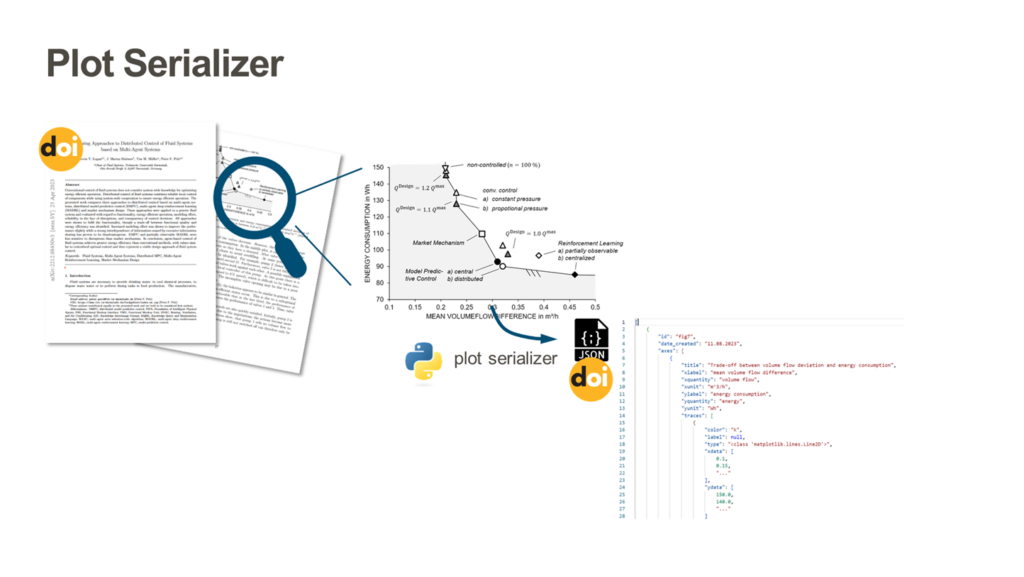To fight the reproducibility crisis in science, the NFDI4Ing task area ALEX is developing PlotSerializer – a Python package for serializing scientific diagrams from popular libraries like matplotlib to json.

PlotSerializer drastically reduces the effort needed for making datasets and the corresponding metadata FAIR. It allows users to store the data from the diagrams along with all relevant metadata in a JSON file and thereby improve the findability, accessibility, interoperability and reusability (FAIRness) of the data. Focusing on plots, PlotSerializer can assist authors in preparing FAIR publications by allowing them to serialize plot data easily, either as supplemental material when publishing a raw or full dataset, or as a standalone data publication where sufficient. PlotSerializer will also offer an interface for RO-Crates, enabling the user to create metadata profiles together with the serialized plot data.
In mid-2023, the first demo version of PlotSerializer was published. Since then, a group of computer science students from TU Darmstadt has been collaborating on the task, improving and broadening its functionality on the frontend as well as the backend. In addition to one user study that was performed in January 2024, another one will be performed in late February to further incorporate user feedback.
In the near future, we are planning to provide comprehensive examples for using PlotSerializer in ALEX-related settings, i.e. for publications including data from bespoke experiments to demonstrate the ability of documenting test rig data. We believe that PlotSerializer is useful for any academic working on scientific publications.
An insight into the current state of development can be found here:
https://plot-serializer.readthedocs.io/en/latest/
Michaela Leštáková (ORCID)
